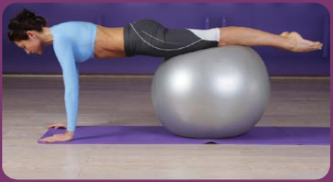|
10/7/2019 0 Comments Is Pilates for you?What began as a set of exercises for injured dancers and athletes has turned into a beneficial form of exercise for almost everyone. Could it suit you?Physical trainer Joseph Pilates introduced Pilates into the United States in the 1920s. The purpose of this form of exercise was to help injured dancers and athletes return to their sport safely. However, the benefits and sheer variety of exercises available has made it popular with the general public too.
Pilates consists of hundreds of yoga, ballet, and calisthenic-inspired exercises that stretch and lengthen your major muscle groups in a balanced way. With regular sessions, you may see improvement in your muscular and postural strength, balance, flexibility, stress management, spine stabilisation, concentration, body awareness, and more. Pilates is suitable for almost anyone – those who are new to it, anyone wanting to add to existing fitness routines, or those who need a safe method of rehabilitation. You can also perform the exercises with or without exercise equipment, depending on the class and instructor. Mat-based Pilates uses your body weight and gravity for resistance, while equipment-based classes involve muscle resistance items such as dumbbells. In Pilates, you are not worked to the point of exhaustion, sweating or straining, just intense concentration. The focus is on slow, precise, and rhythmical sets of movements, alongside breathing and abdominal control. If an exercise doesn’t work for you, or isn’t benefitting you, the instructor can re-evaluate it to find out what’s more appropriate. The individual attention of Pilates can make it a desirable exercise option for many – from athletes through to those with limited mobility. If you believe you could benefit from improved strength, stability, balance, and feelings of wellness, then it could be time to find out what Pilates classes are near you. Most classes are held in Pilates studios, gyms and community centres, and are usually no longer than an hour and a half. Many can offer tailored exercises to suit your limitations and preferences. Always attend classes with a qualified instructor and ensure you have medical clearance from your doctor. Seek medical advice if you are pregnant, have had surgery, are over 40, have pre-existing conditions or disorders, are overweight, or have not exercised in a while. Once you start Pilates classes, it’s important not to expect too much right away. Attend two or three times every week, and you may notice improvements after 10 to 20 sessions.
0 Comments
Leave a Reply. |
AuthorAdam's Back is a team of dedicated complimentary health professionals. Our aim is to support you in finding drug-free solutions for better health. Archives
July 2024
Categories |
Search by typing & pressing enter


 RSS Feed
RSS Feed